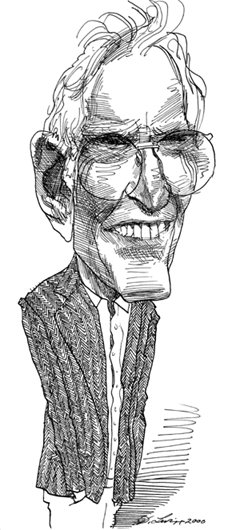 |
|
Anne Applebaum
Since 2000, Russia has been ruled by a revanchist, revisionist elite with origins in the old KGB. This elite had been working its way back to power since the late 1980s.
|
| |

ADVERTISEMENT
|
|
|
| |
 |
|
Jed Perl
No artist has ever embraced the freedom of the imagination with more fierce, hell-bent intensity than Picasso.
|
| |
 |
|
Helen Epstein
Eventually Ebola will be contained in Liberia, and next time people should be ready for it so fewer will die. But the virus has shed light on a far tougher problem. Many Liberians don’t trust their president or her government.
|
|
|
| |
In the current issue: James Gleick on Anonymous, Michael Tomasky on the twilight of the Obama era, Hilton Als on Diane Keaton, Richard Holmes on Coleridge, Anka Muhlsteinon Patrick Modiano, Michael Dirda on Richard Ford, Charles Baxter on H.P. Lovecraft, Patricia Storace on Sandra Gilbert, Rachel Donadio on Elena Ferrante, and more
|
|
|
| |

ADVERTISEMENT
|
| |
|
|
Edwin Frank
Further information is sure to be
forthcoming, but for now
our one
recourse is
to wait, and we,
we have been,
we have been waiting now
for a very long time…
|
|
|
| |
 |
|
Elizabeth Drew
Though Hagel and Obama thought quite alike and respected each other, Hagel was probably not cut out for the Obama administration, or for what it’s evolved into.
|
| |
 |
|
Ahmed Rashid
The first thing we need to recognize is that ISIS is not waging a war against the West.
|
|
|
| |

Mark Strand, a longtime contributor to the Review , died on Saturday. Here is “2002,” one of his poems from our archives:
I am not thinking of Death, but Death is thinking of me.
He leans back in his chair, rubs his hands, strokes
His beard and says, “I’m thinking of Strand, I’m thinking
That one of these days I’ll be out back, swinging my scythe
Or holding my hourglass up to the moon, and Strand will appear
In a jacket and tie, and together under the boulevards’
Leafless trees we’ll stroll into the city of souls. And when
We get to the Great Piazza with its marble mansions, the crowd
That had been waiting there will welcome us with delirious cries,
And their tears, turned hard and cold as glass from having been
Held back so long, will fall, and clatter on the stones below.
O let it be soon. Let it be soon.”
|
|
|
|

